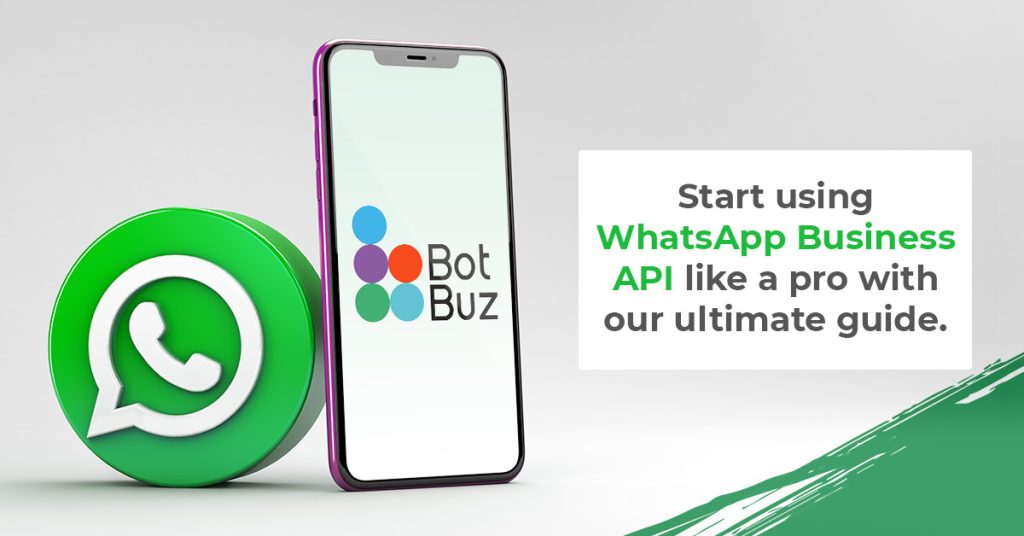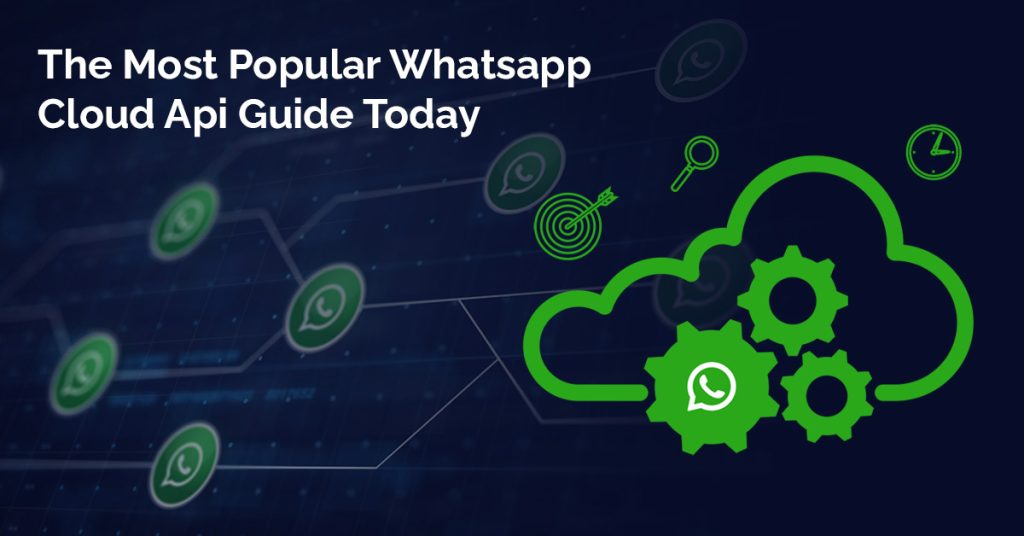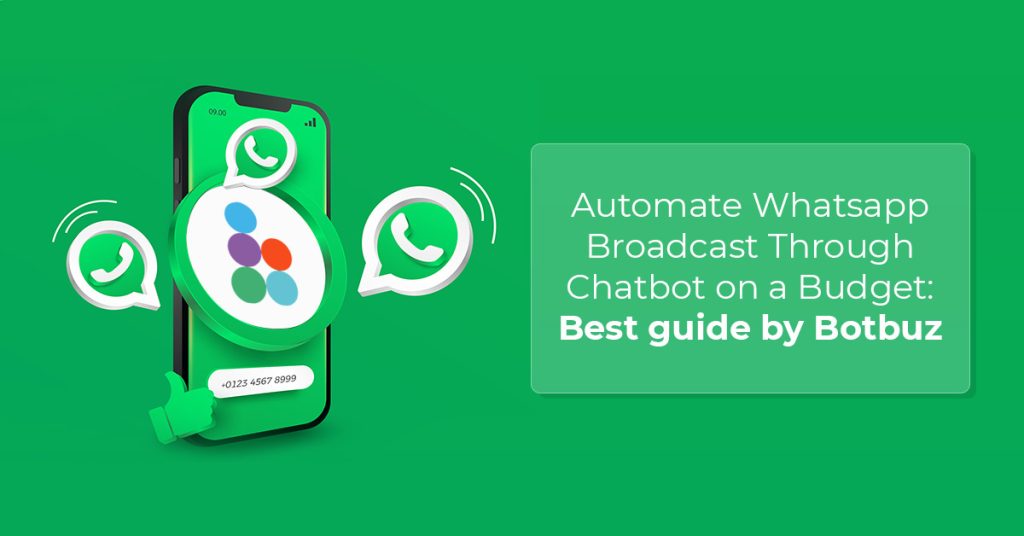- WhatsApp Emerging as a Strategic Tool for Insurers in 2025 :
- Why WhatsApp Matters for the Insurance Industry in 2025 ?
- The Untapped Opportunity of WhatsApp Insurance :
- Key Use Cases of WhatsApp in Insurance :
- What is the Impact of WhatsApp in Insurance ?
- Benefits of Integrating WhatsApp Business API in Insurance :
- WhatsApp Chatbots : Automating Insurance Communication
- Getting Started : How Insurance Companies Can Implement WhatsApp in 2025
- Using Botbuz Chatbot :
WhatsApp Emerging as a Strategic Tool for Insurers in 2025 :
The insurance sector is digitally transforming. It is evolving customer expectations and technological advancements. Communication has shifted from traditional methods to real-time. It provides personalized digital interactions across multiple channels. 2025 is a key year for this transformation. It emphasizes customer experience, technology integration, self-service, and data-driven insights. WhatsApp is becoming a strategic tool for insurers due to its widespread use. It has the ability to provide real-time, secure, personalized, and automated communication. Thus, improving customer service and operational efficiency.
Why WhatsApp Matters for the Insurance Industry in 2025 ?
WhatsApp is crucial for the insurance industry due to the rise of mobile-first consumers. They demand instant & personalized communication. The platform’s high open and response rates significantly outperform email and calls. It ensures that messages are seen and acted upon. The evolving regulatory frameworks are supporting the use of secure digital channels like WhatsApp for official & sensitive communications.
The Untapped Opportunity of WhatsApp Insurance :
The insurance industry has a significant, yet largely unexploited, opportunity with WhatsApp. Current market trends show that customers expect instant, personalized service, particularly from their mobile devices. Despite this, many insurers are only using messaging platforms. They are missing out on their full potential for deeper engagement and automation. This underutilization means WhatsApp can change traditional, often slow & paper-heavy, insurance communication models. Thus, leading to more efficient, customer-centric experiences across all stages of the insurance journey.
Key Use Cases of WhatsApp in Insurance :
For Policy Issuance and Renewals, insurers can use WhatsApp. It can send policy documents to customers, offering immediate access. The platform can also send automated reminders for policy renewals. It can enable simple one-tap renewal processes for customer convenience.
In Customer Onboarding, WhatsApp can streamline the initial customer journey. It allows for the automated collection of KYC documents and other necessary information directly within the chat. Insurers can also clearly explain complex policy terms through interactive chat flows. Thus, ensuring new customers understand their coverage.
For Claims Processing & Support, WhatsApp provides an efficient way to manage claims. Customers can file claims in real-time. It can upload photos or videos of damages through the app. Thus, speeding up evidence collection. They also receive instant updates on their claim status, enhancing transparency.
For 24/7 Customer Support, insurers can deploy AI-powered chatbots on WhatsApp. It offers round-the-clock assistance. These chatbots can answer FAQs and resolve common issues. For more complex inquiries, the system can transfer the conversation to a human agent. Thus, ensuring continuous support.
In Marketing & Customer Engagement, WhatsApp serves as a valuable tool for proactive outreach. Insurers can send personalized offers, suggest additional coverage. Also they can share educational content like safety tips or policy updates. This fosters deeper customer relationships and builds loyalty.
What is the Impact of WhatsApp in Insurance ?
Using WhatsApp in the insurance industry has a significant impact. It leads to improvements in both operational efficiency and customer relationships.
One major impact is the reduction in claim processing times. Insurers can allow customers to start claims, upload necessary documents like photos or videos, and receive real-time updates directly through WhatsApp. Chatbots can even handle initial claim triage and information gathering instantly. This streamlined process can significantly cut down the time it takes to settle a claim. Thus, in turn reducing customer stress and frustration.
These improvements in the claims process, combined with 24/7 support and personalized communication, lead to higher customer satisfaction and retention. When customers experience faster resolutions, clear communication, and easy interactions on a platform they already use, they are more likely to remain loyal to their insurer.
From a business perspective, integrating WhatsApp offers a strong Return on Investment (ROI). By automating many routine customer queries and tasks, insurers can achieve considerable cost reductions in their customer service operations. It frees up human agents for more complex issues. The increased efficiency across various processes also contributes to overall operational savings.
Furthermore, adopting WhatsApp provides significant competitive advantages. It positions insurers as innovative and customer-centric, crucial in a market where customer expectations are constantly rising. It helps insurers boost customer engagement through high message open and response rates.
It also enhances lead generation and conversion through personalized interactions. Using WhatsApp helps build trust and transparency. It offers real-time updates and secure communication. Finally, it increases operational agility. Thus, allowing insurers to quickly adapt and offer new services.
In essence, by using WhatsApp, insurers can create efficient, cost-effective & satisfying customer journeys. Thus, leading to better financial results and a stronger market standing.
Benefits of Integrating WhatsApp Business API in Insurance :
It provides 24/7 automated support with chatbots. This means customers can get immediate answers to their frequently asked questions. It can even answer policy inquiries, or even basic claims assistance at any time, without waiting for business hours. This automation frees up human agents to focus on more complex or sensitive customer interactions.
The API enables secure document collection and KYC (Know Your Customer). Insurers can guide customers through the onboarding process. It allows them to upload necessary identification and other documents directly and securely. It is through WhatsApp’s end-to-end encryption. This streamlines a crucial, often cumbersome, part of the insurance process.
Insurers can offer personalized policy recommendations. By integrating with CRM systems, the WhatsApp Business API allows companies to analyze customer data and behavior. This enables them to send tailored suggestions for new policies, add-ons, or special offers that genuinely align with an individual’s needs. Thus, leading to more relevant communication and potential upselling/cross-selling.
The API facilitates instant premium reminders and payment updates. Insurers can send automated notifications for upcoming premium due dates. It can confirm successful payments, or alert customers about any payment-related issues in real-time. This reduces late payments and provides customers with immediate confirmation. Thus, fostering trust and convenience.
All these benefits collectively lead to improved customer satisfaction and retention. By offering quick, convenient, personalized, and secure communication on a platform customers already use daily, insurers can significantly enhance their service quality. This proactive and efficient engagement builds stronger customer relationships. Thus, leading to higher loyalty and retention rates in a competitive market.
WhatsApp Chatbots : Automating Insurance Communication
WhatsApp chatbots are fundamentally changing how insurance companies interact with their customers. It automates many routine communications.
A main function of these chatbots is to manage large volumes of customer inquiries. Customers in the insurance industry often have similar questions. It is about their policies, claims, or payments. Chatbots can provide immediate and accurate answers to these common questions around the clock. It reduces the workload for human customer service representatives. Also it cuts down on customer waiting times.
For chatbots to work, they need smooth integration with CRM & the insurer’s databases. This connection allows the chatbot to access and use specific customer details. It includes policy information, payment history, and claim status. By linking to these systems, the chatbot can give personalized answers & take actions. It is on the basis of each customer’s data, rather than just offering general information.
Getting Started : How Insurance Companies Can Implement WhatsApp in 2025
For insurance companies in 2025, implementing WhatsApp is about more than having an account. It requires a strategic approach using the WhatsApp Business API.
The right WhatsApp Business API provider is paramount. Insurers should look for a Meta-official Business Solution Provider. It must offer robust features. Key considerations include the provider’s ability to facilitate bulk messaging. It integrates with existing CRM and insurance databases, providing a no-code chatbot builder. Thus, ensuring enterprise-grade security and compliance. It is especially important for sensitive financial data to offer transparent pricing & guarantee high message delivery rates with reliable customer support. Selecting a reputable partner ensures a smooth setup & ongoing compliance with WhatsApp’s policies.
Setting up chatbots for automation is a critical step. This involves designing conversational flows. It can handle a high volume of common insurance queries. Chatbots should be capable of answering FAQs about policies & providing premium details. It guides through renewal processes, and even assists with initial claim filings. The effectiveness of these chatbots hinges on seamless integration with the insurer’s CRM & other internal databases. Thus, allowing for personalized responses based on individual customer data. This automation not only improves response times but also frees up human agents.
Training agents for hybrid support is essential. Chatbots can handle routine tasks. While complex or sensitive customer interactions will still require human intervention. Insurance agents need to be trained. They must seamlessly take over conversations from chatbots. It is done by accessing the chat history & customer context to provide continuous & high-quality support. This hybrid model ensures that customers receive efficient automated assistance for simple matters and empathetic, expert help for more intricate issues.
Continuous optimization using analytics is vital for long-term success. Insurers should regularly monitor key performance indicators (KPIs). They are related to their WhatsApp usage. It includes message open rates, response times, chatbot resolution rates & customer satisfaction scores. Analyzing this data helps identify areas for improvement in chatbot scripts, agent training & communication strategies. Continuous feedback loops, driven by analytics, allow insurers to refine their WhatsApp implementation. It adapts to evolving customer needs, and maximizes the platform’s benefits. Thus, having sustained growth and improved customer experience.
Using Botbuz Chatbot :
Consider a tool like the Botbuz WhatsApp Chatbot. It can automate various insurance communications. It includes instantly answering common policy FAQs about coverage and terms. It can also send automated reminders for premium payments or policy expirations. Thus, ensuring customers are kept informed. Moreover, it can streamline renewals by guiding customers through the process directly within the WhatsApp chat. It helps them provide necessary information and even complete one-tap renewals. This automation greatly improves efficiency and convenience for customers.
Conclusion :
For insurers in 2025, WhatsApp is now essential. This is because customers increasingly use mobile devices and expect instant, personalized communication. Embracing a “digital-first” approach is vital. It means insurers must prioritize digital channels for all customer interactions, from quotes to claims. To achieve long term success and fully leverage WhatsApp’s capabilities, insurers should explore the WhatsApp Business API with trusted partners for advanced automation. It can also secure data handling, and seamless integration with existing systems.




